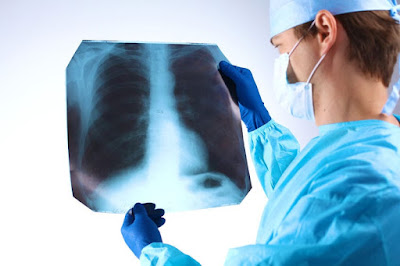Things you need to know about pulmonary hypertension
Pulmonary Hypertension is basically high blood pressure in arteries that go from heart to lungs. It is not similar to having high blood pressure. When the blood pressure in small arteries of lungs becomes high, they get blocked or narrowed. This makes the blood flow very difficult and raises the pressure in the lungs. Consequently, the heart needs to pump blood faster making the muscles go weak. This eventually leads to heart failure.
Causes
Many times the cause of the disease remains undiagnosed. It is called idiopathic pulmonary hypertension. Genes are the factors as to why some people get the disease.
Other times, it is caused by another illness that is already present in the body. Any of the following illnesses can cause high blood pressure in the lungs:
Congestive heart failure
Blood clots in lungs
HIV
Using illegal drugs like cocaine or marijuana
Liver disease like cirrhosis
A heart defect you're born with
Lung diseases like chronic bronchitis or pulmonary fibrosis
Sleep apnea
Symptoms
Many times the cause of the disease remains undiagnosed. It is called idiopathic pulmonary hypertension. Genes are the factors as to why some people get the disease.
Other times, it is caused by another illness that is already present in the body. Any of the following illnesses can cause high blood pressure in the lungs:
Congestive heart failure
Blood clots in lungs
HIV
Using illegal drugs like cocaine or marijuana
Liver disease like cirrhosis
A heart defect you're born with
Lung diseases like chronic bronchitis or pulmonary fibrosis
Sleep apnea
Symptoms
Common symptoms of pulmonary hypertension include:
Shortness of breath
Chest pain
Fatigue
Passing out
Swelling in ankles and legs
Diagnosis
Getting diagnosed from the best pulmonologist in Nagpur can give you clear insights on how far gone your condition is. Your doctor can recommend you to go for the following tests and treatments:
Echocardiogram
CT scan
Ventilation-perfusion scan (V/Q Scan)
Electrocardiogram (ECG)
Chest X-ray
Exercise testing where the doctor can monitor oxygen levels, heart functions, lung pressure, etc.
Blood test
Precautions
Following precautions should be taken when diagnosed with pulmonary hypertension:
Staying active even if you experience breathlessness.
Regular exercising
Consultation with a doctor for what kind of exercises are permitted.
Taking plenty of rest.
Maintaining a healthy diet that comprises of vegetables, fruits, and whole grains.
Even though there is no cure for pulmonary hypertension, early detection, and diagnosis can make it easier to live with the disease. It can be caused by various factors that could be genetic or related to other illnesses, once the underlying condition is treated, it will definitely make you feel better. If you don't feel good, then you should definitely go for one of the best multispeciality hospital in Nagpur.




Comments
Post a Comment